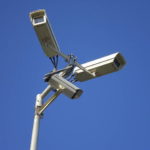In 2020, Chinese parliament passed a new civil code that went into force on January 1, 2021. The new regulations contain a social credit system which is designed as a set of incentives and disincentives in the field of social behaviour. At the start each citizen is granted 1.000 points. Then a prescribed number of points is either subtracted from or added to this sum for a negative or positive act on the part of an individual. People with social ratings exceeding the initial 1.000 are awarded with all sorts of preferential treatment in banks and offices, whereas those whose initial sum of points dwindles encounter all manner of punitive measures like having difficulties taking out a loan or having worse employment opportunities. What kind of behaviour is rewarded?
Duty towards the state, which is mainly the timely payment of liabilities (taxes, credits, bills); duty towards society, which is the compliance with the law, participation in social events, care of one’s parents, having the allowable number of children, criminal record; and the individual’s activity in the net (behaviour towards other users, reliability of the information posted, purchases made and the like. The three categories are subjected to an algorithm which determines the social rating of a citizen. This in turn facilitates or impedes an individual’s efforts in terms of the availability of social services, price of credit, access to good education, travel abroad, employment or career in state-run institutions. The social rating system is made possible by heavy monitoring, by the hundreds of thousands of cameras, by the internet, and by overall data gathering.
The Western media have raised alarm and struck fear into the hearts of Europeans and Americans. It surpasses George Orwell’s predictions! It is Aldous Huxley’s brave new world in the making! China’s inhabitants are held on a tight leash while the uppity communist rulers wielding unbridled power step in with might and main to crush the vestiges of individual freedom by naming and shaming, by placing citizens under a round-the-clock surveillance and making their well-being conditional on complying with the state (party) requirements. A big kindergarten for adults to say the least, an ominous digital concentration camp to say it openly.
The social credit system has been long in coming and is by no means a Chinese invention. One is forcibly reminded of the tens of thousands of surveillance cameras in London and other cities, of the cookies which keep reminding us of their presence with every click opening a new website, of the advertisements popping up on our computer screens, advertisements whose contents miraculously correspond to our commercial and other choices, of our smartphones which reveal our whereabouts and record our connections, of our YouTube or Twitter accounts which are censored, barred, or shut down by an an algorithm or real people, of many, many other things. We are under surveillance whether we like it or not, and most of the time we like it. Furthermore, millions of people make a daily confession of their everyday activities on Facebook and similar social media, sharing snapshots and video clips, divulging innermost thoughts and boasting of purchases or journeys.
Likewise, in Europe, in North America, when we want to have a contract with an insurance agency or a financial institution, we are required to make a confession of our material means, the history of the diseases that we suffered or are suffering from, and what not. Cameras are galore: mounted in offices, in vehicles, on soldiers’ or policemen’s helmets, in shops, at road junctions, you name it. Recognition of facial features has made enormous progress. All of this serves the same system of incentives and disincentives. You have had too many road accidents? Then you will be punished by paying a higher insurance premium. You have had a serious disease? Well, your health insurance contract will cost you more. You have visited an online bookshop more than once? Expect adverts of books every now and again accompanying the websites that you visit. You have posted a content that the powerful do not like? Then you get a warning from YouTube or Facebook, or your content is suppressed. You may be the president of the world’s only superpower and still, and despite that you get crushed by the system of social rating that operates outside the People’s Republic of China, that operates in the Land of the Free. If such a surveillance system has long been operating and continues to do so in the most liberal democracy the world has ever seen, why this hue and cry about the Middle Kingdom? Probably because it is easier to see the speck in your neighbour’s eye.
Picture: Surveillance video cameras in Gdynia by Paweł Zdziarski – Own work, CC BY 2.5, Wikipedia.




